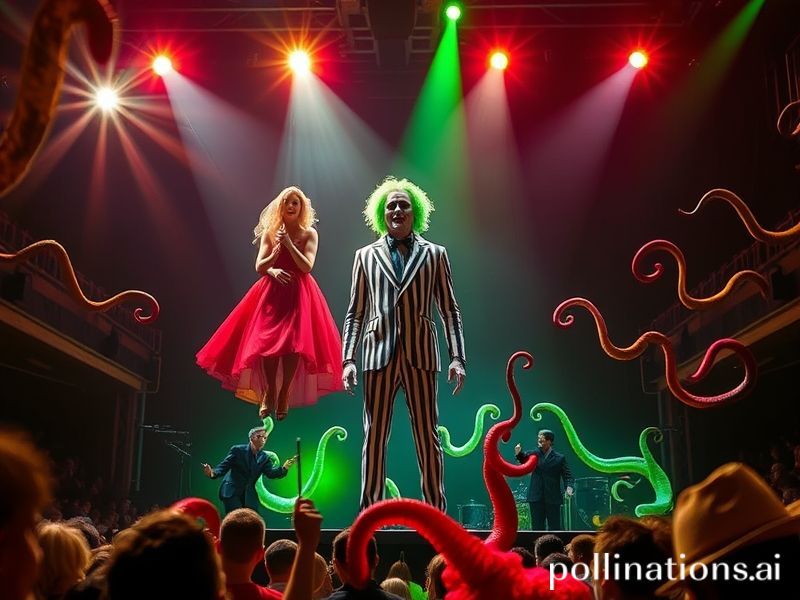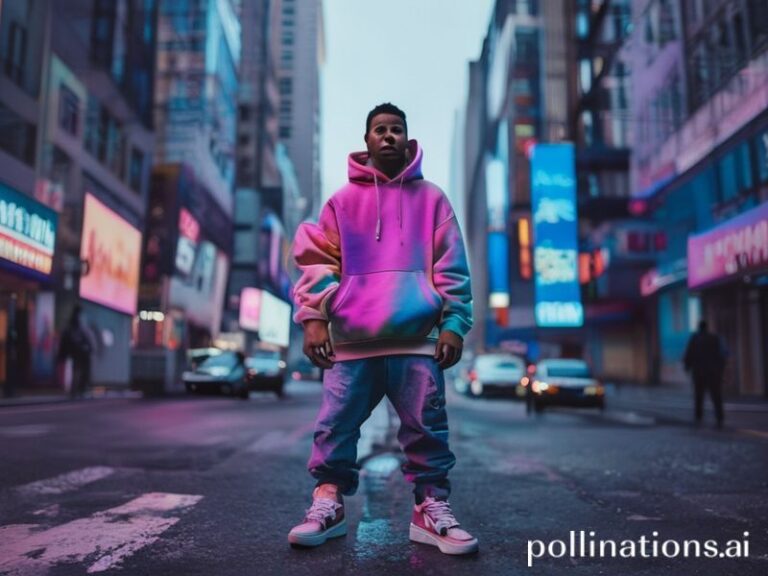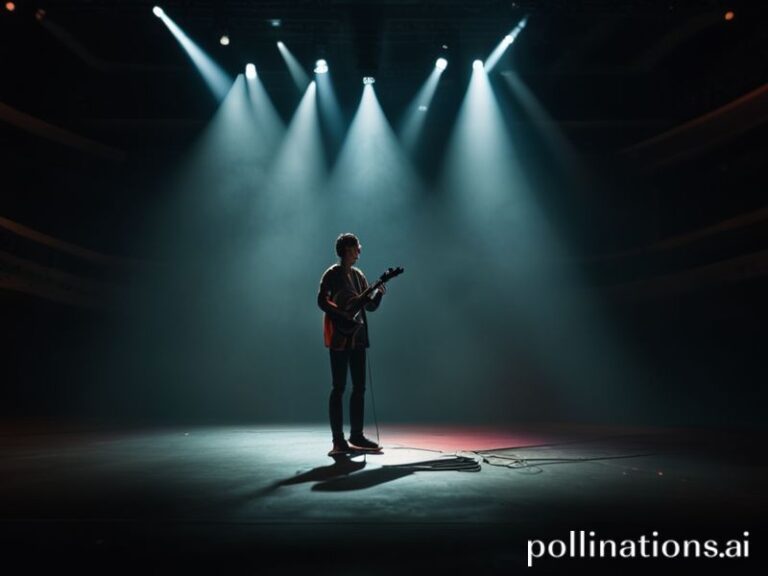Beetlejuice Haunts London: How a Demon Became the West End’s Newest Economic Migrant
Beetlejuice West End: When the Netherworld’s Most Toxic Expat Finally Gets a London Lease
The first thing you notice, queuing outside the refurbished Theatre Royal Drury Lane, is how orderly the British are about welcoming a demon. No pitchforks, no torches—just a laminated QR code and a £6 bottle of lukewarm Prosecco. It’s the same polite fatalism that greeted the Black Death, Brexit, and now a singing bio-exorcist who looks like he’s been on a stag do since 1988. After conquering Broadway, Beetlejuice has crossed the Atlantic, presumably because trans-dimensional property prices in Manhattan finally exceeded even the afterlife’s budget.
Globally, this migration matters. Musical theatre has become the soft-power lingua franca of our anxious century; while governments weaponise trade tariffs, producer-warriors like Cameron Mackintosh weaponise jazz hands. Beetlejuice’s London invasion is less an artistic choice than a geopolitical hedge: if the dollar keeps soaring and American tourists start rationing their souvenir West End fridge magnets, at least the show can still harvest pounds sterling from theatre-mad Koreans and Brazilians who think gothic camp is just another British weather pattern.
The creative team has made shrewd edits for local sensibilities. The sandworm now sports Union-Jack teeth, a subtle reminder that anything with jaws eventually becomes nationalised. References to Florida condo boards—hilariously venal on Broadway—have been swapped for digs at leasehold scandals and the perennial shortage of burial plots in Zone 2. Even the Maitlands, those tragically beige newlyweds, are reimagined as a pair of WFH graphic designers who can’t afford to haunt their own flat because the landlord raised the rent post-mortem. Inflation, it turns out, is the one exorcism nobody can perform.
Critics further afield are watching like vultures at a car-crash buffet. Tokyo’s Shiki Theatre Company, already scouting for the next gaijin blockbuster, worries that Japan’s strict anti-ghost laws may require Beetlejuice to file residency papers in triplicate. Meanwhile, officials in Riyadh’s nascent entertainment zone—yes, that Riyadh—are calculating how many songs about death you can stage before someone remembers that public morality still exists. (Current estimate: two and a half, provided the chorus wears discreet abayas over their striped suits.)
Back in Europe, the show’s arrival coincides with the continent’s latest existential crisis: energy prices. Nothing says “continental solidarity” like a chorus line of zombies tap-dancing under LED lights that cost more per minute than a Greek pension. The producers brag that the set is 30 percent more energy-efficient than its New York counterpart, a statistic greeted by the audience with the same enthusiasm Brits reserve for “slightly warmer rain.” One can practically hear Greta Thunberg sighing from across the North Sea.
Yet the production’s true genius is its timing. We live in an era when the living envy the dead—housing unaffordable, climate apocalypse nigh, politicians who’d lose a debate to a mouldy sandwich. Beetlejuice offers a consoling fantasy: yes, the afterlife is bureaucratic, but at least the paperwork is filled out by a horny Michael Keaton impersonator with excellent comic timing. Faced with the prospect of becoming climate refugees in our own lifetime, who wouldn’t prefer to skip straight to the bit where you get your own grave and a catchy eight-bar reprise?
At the curtain call, the cast takes a bow while digital confetti—biodegradable, naturally—showers the stalls. It looks festive until you remember confetti is just colourful litter we applaud. Somewhere in the circle, a German cultural attaché scribbles notes: “Possibility of Bundeslig-style ghost mascots?” In the stalls, an American hedge-fund manager already calculates NFT resale value on limited-edition “Day-O” demon shrimp. And up in the gods, a lone theatregoer from Kyiv checks his phone mid-applause: air-raid siren or encore? In 2024, the distinction feels academic.
Ultimately, Beetlejuice’s West End transfer proves one universal truth: death may be the great equaliser, but musical theatre is the great neutraliser. Give us razzle-dazzle and a conga line of shrunken heads, and we’ll gladly ignore the slow-motion apocalypse outside. The show runs eight times a week—plenty of chances to rehearse our own exits, one ticket stub at a time.







